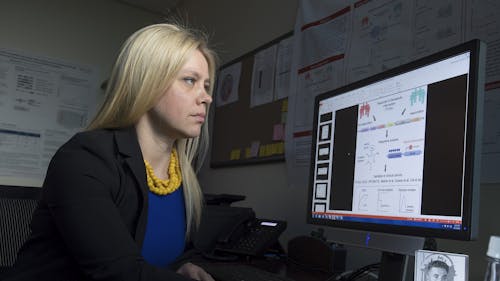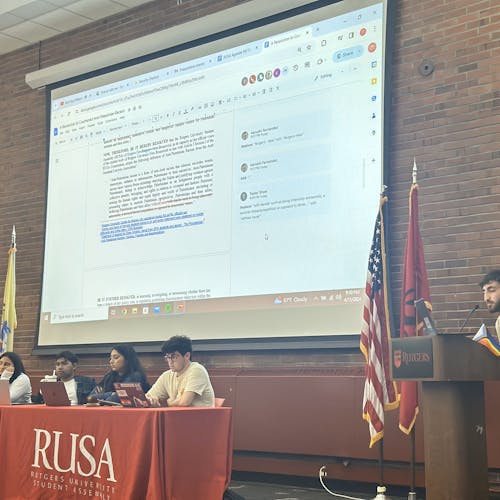Rutgers professor identifies gene causing spread of prostate cancer

According to the American Cancer Society, prostate cancer is the most common cancer in American men, and the second leading cause of cancer-related deaths in American men. In light of these statistics, Antonina Mitrofanova, assistant professor in Health Informatics, recently identified the gene responsible for the spread of prostate cancer through her computer algorithm.
“We found a group of genes that were responsible for cancer spread in mice,” Mitrofanova said.
The gene, known as NSD2, is a histone-lysine N-methyltransferase, which means it is a type of protein molecule that can modify DNA segments. By affecting this process, the accessibility and activity of other genes is impacted as well, Mitrofanova said. This, in turn, can affect the ability of a cancer cell to spread.
While there have been many findings of important animal genes, they do not always link back to the medical treatment of humans. Mitrofanova’s main question about the mice research came down to figuring out which genes were relevant to humans. She said her algorithm specifically identified the gene NSD2 to be connected between both mice and humans. It has also shown that the gene causes cancer spread in humans, not just mice.
Currently, there are certain issues that physicians face when it comes to prostate cancer. They can recommend treatment based on the severity of the tumor, but this does not always tell how quickly the cancer could spread.
“When physicians diagnose patients with prostate cancer, they cannot predict how fast the cancer will spread,” Mitrofanova said.
With her discovery of NSD2, physicians are given a tool to identify patients at high risk of the cancer spreading, even at the time of diagnosis. Those patients are advised early therapeutic intervention such as chemotherapy, she said.
Mitrofanova’s involvement with computers began once she immigrated to the United States. She said she was in medical school for four years in Ukraine, but took an academic leave because she decided to join her husband in the United States. She could not continue her medical studies in the United States, though, because it was too expensive, so she switched to computer science.
“I always liked math and decided to go into computer science with an idea to connect it to oncology and to learn how to analyze big molecular data to help patients,” she said.
When Mitrofanova was 9 years old, her grandfather volunteered to help alleviate some of the damage that resulted from the Chernobyl nuclear disaster in Ukraine. This disaster is known for the widespread cancer caused by radiation that occurred after the nuclear reactors malfunctioned. As a result, Mitrofanova’s grandfather was diagnosed with prostate cancer shortly after. He is still alive to this day, which has continued to inspire Mitrofanova.
“These events had a big impact on me, and I decided to become a doctor and help patients with cancer,” Mitrofanova said.



